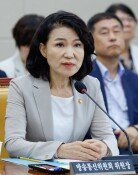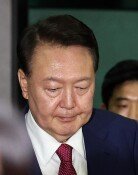Won falls to 1,154 per U.S. dollar
Won falls to 1,154 per U.S. dollar
Posted November. 21, 2000 14:27,
The exchange rate of the won has soared to 1,150 won per U.S. dollar. On Nov. 20, the exchange rate jumped by 12.2 won and closed at a yearly high. This year's highs were the 1,146.6 won closing rate recorded Jan. 6 and 1,156 won during the day's trading Jan. 7.
It is estimated that demand for dollars is greater than supply and that the prevailing psychology for further rise created artificial demand.
Oil refineries are expected to make their payments at the end of the year, and banks are buying dollars to accumulate bad debt reserves for foreign exchange loans provided to corporate clients. On the other hand, corporations are reluctant to sell dollars with expectations that the value of the dollar will rise further. Also, foreign exchange dealers say that the sliding value of Southeast Asian currencies sparked purchases of dollars.
Experts say that there is a possibility that foreign investors, who amassed stocks when the exchange rate was 1,130 won, could sell off their stocks with worries about foreign exchange losses.
Oh Suk-Tae, general manager of Citibank, said that the falling value of the won is a natural phenomenon at a time when semiconductor prices slide and international oil prices soar along with slowdown in the nation's economic growth. He anticipated that the exchange rate could soar to 1,180 won within the next three months.
Chung Kyung-Joon news91@donga.com







